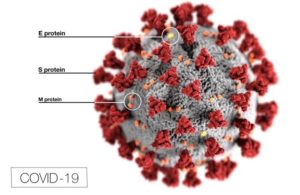April 10, 2020
Chen Kane, Rhianna Kreger
This article is part of World War “V”: The COVID-19 Pandemic, a collection of all CNS COVID-19-related articles.
The following is an excerpt of an article in Bulletin of the Atomic Scientists
Across the world, the COVID-19 pandemic has given a boost to go-it-alone political nationalism. This is true in the Middle East as much as it is anywhere else, but countries in the region will have to buck the trend and cooperate like never before if they want to make it out intact.
The return of nationalism and strong borders was predictable. After all, the virus doesn’t travel; virus-infected people travel, and in doing so spread the disease. Extreme measures limiting people’s movement can only be enacted—and enforced—by states. International and regional organizations have neither the authority nor the capacity in this regard. In fact, the World Health Organization might even have played a role in enabling the spread of the virus by its reluctance to recommend restrictions on the movement of people.
In the Middle East, governments and societies are more accustomed to restricting individual freedoms in the name of national security. In Israel, Iran, Jordan, and the Gulf countries, such retrenchment is proceeding with an intensity that is unprecedented even in the region: authorities are limiting movement; some have deployed the army in their streets to enforce curfews; others are tracking infected people by their mobile phones; and still others are organizing and deploying neighborhood watch teams. This proclivity may prove to be the region’s advantage over its Western counterparts, where such actions have come slowly, late, and in some places, not at all.
Such a proclivity isn’t all good news, though. The question remains whether these governments will readily relinquish such tight-fisted control after the pandemic ebbs, or what form the backlash to them will take, and when.
Continue reading at Bulletin of the Atomic Scientists
See Also
 World War “V”: The COVID-19 Pandemic
World War “V”: The COVID-19 Pandemic
A collection of all CNS COVID-19-related articles
